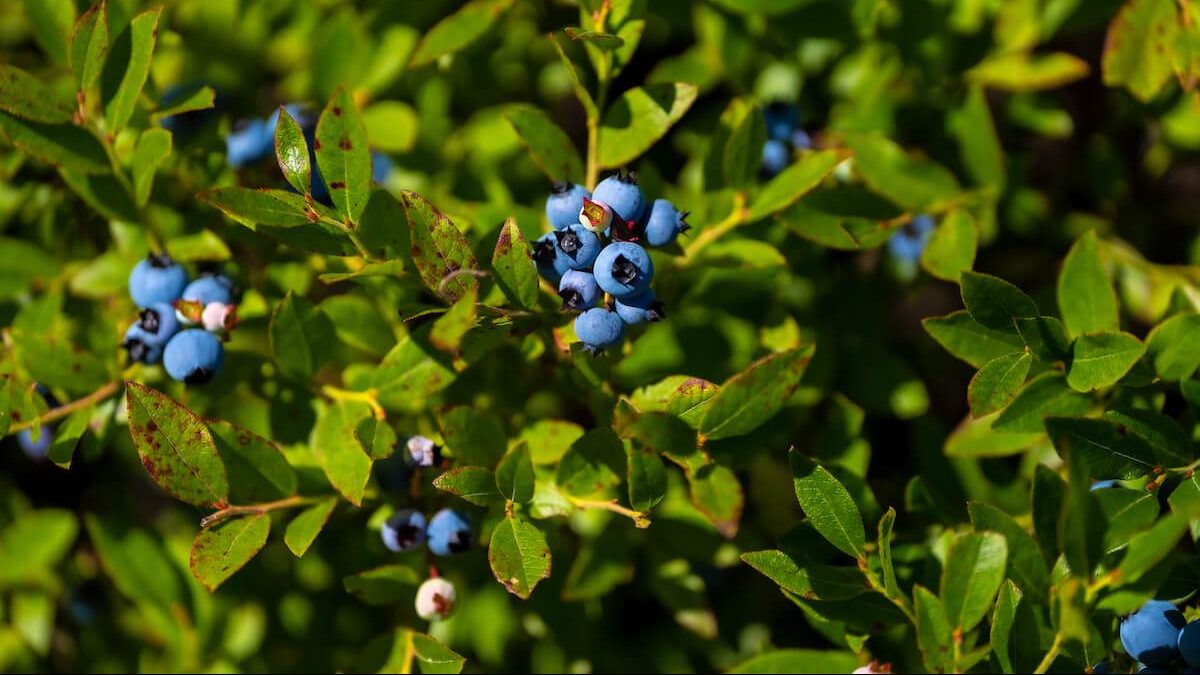
New study to assess how biochar from Maine forest biomass can help wild blueberry farmers
Determining how wild blueberry growers can use biochar, charcoal-like material derived from the pyrolysis of wood, to increase soil moisture and aid in the crop’s ability to be resilient to drought will be the focus of a new study by University of Maine researchers.
The U.S. Department of Agriculture’s (USDA) Natural Resources Conservation Services (NRCS) awarded more than $74,000 for the project, led by Yongjiang Zhang, an assistant professor of applied plant physiology, in collaboration with Ling Li, an assistant professor of sustainable bioenergy systems; Lily Calderwood, an assistant professor of horticulture and University of Maine Cooperative Extension wild blueberry specialist; and Ivan Fernandez, a professor of soil sciences and forest resources.
Seasonal drought, which has been seen more frequently in the wild blueberry growing regions due to climate change, reduces soil moisture through increased evaporation and crop water loss, according to previous UMaine research. Over a long period of time, the decrease in available water is more likely to harm the vigor and yield of the wild blueberry crops, especially in non-irrigated fields.
Researchers say biochar may be another soil moisture management tool for many wild blueberry farmers. Irrigation, which only covers 30% of farmed wild blueberry land in Maine, is an expensive investment. Because biochar mixes with soils faster and will not be picked up by harvesting equipment, it may be more efficient than wood chips, according to researchers.
Funding from USDA NRCS will begin to address the many aspects of biochar as a soil moisture solution, including sourcing material, affordability, rate of application and its interaction with the wild blueberry system over time.
“Biochar will not only enhance soil water holding and protect crops from drought, but also help mitigate climate change by locking carbon in soils,” Zhang says. “In the long term, it can also improve soil nutrient retention and soil health, which needs to be studied for wild blueberry fields.”
UMaine scientists previously tested biochar on wild blueberries grown in the lab and greenhouse, but now it must be evaluated in the field to assess the practicality of its application at a commercial scale. They plan to conduct their tests at the UMaine Agricultural and Forest Experiment Station, Blueberry Hill Farm in Jonesboro and a privately owned field near Lubec using biochar products made by two Maine companies and the university’s Forest Bioproducts Research Institute.
The team plans to use their findings to create a standard testing protocol for biochar (pH and nutrient and contaminants) and field application guidelines, the latter of which will be shared publicly on the UMaine Extension website and with growers through Extension reports, conferences and field meetings.
“Utilizing biochar to support agriculture benefits rural economic activity in two of Maine’s heritage industries: our farms and forests,” Li says. “By using Maine’s forest biomass to create biochar, we support harvesting operations and active timberland management, and help diversify Maine’s forest products markets. The added benefit of increasing crop yields and vigor allows Maine’s farmers to be more profitable in their operations.”
Contact: Marcus Wolf, 207.581.3721; marcus.wolf@maine.edu
